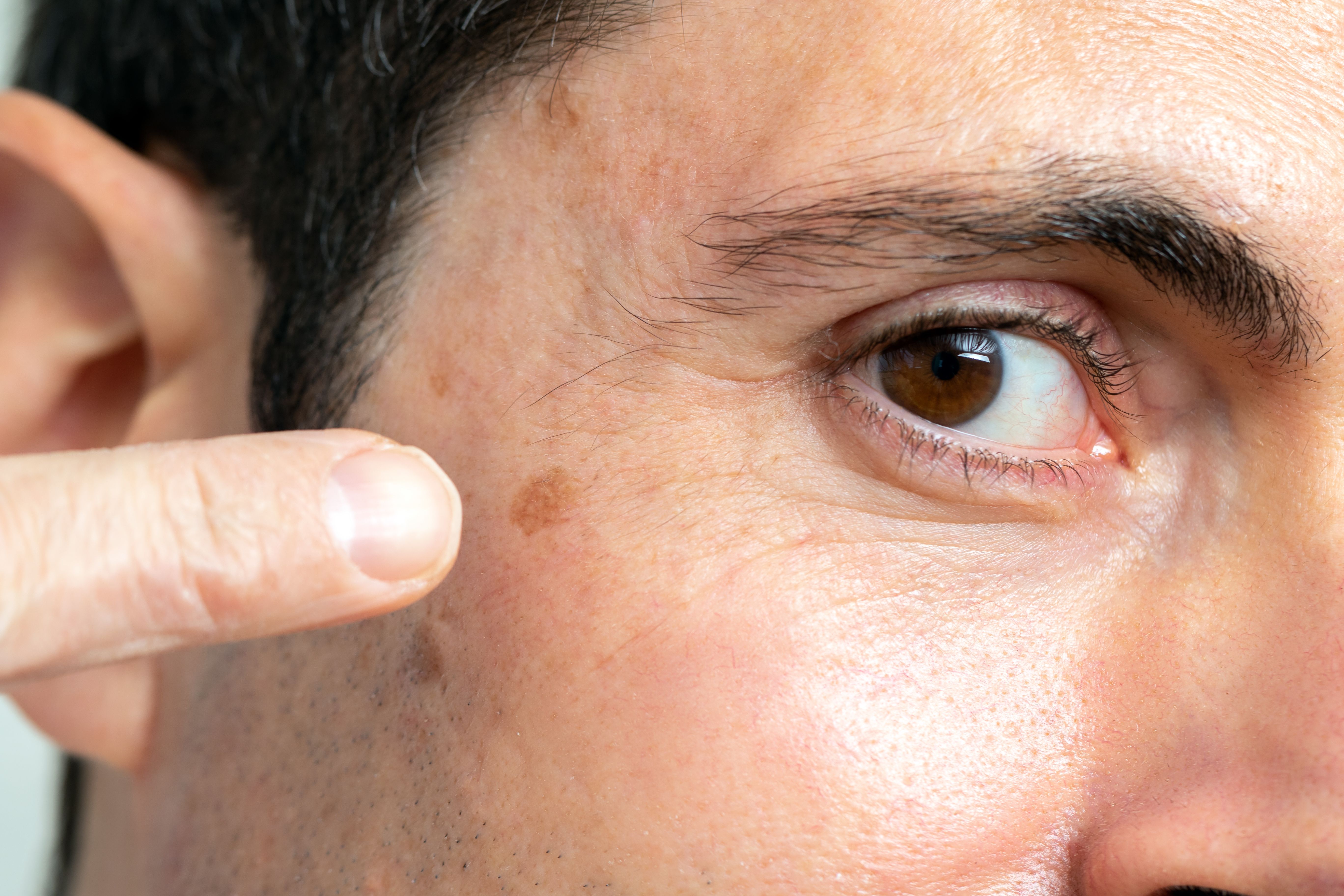- Acne
- Actinic Keratosis
- Aesthetics
- Alopecia
- Atopic Dermatitis
- Buy-and-Bill
- COVID-19
- Case-Based Roundtable
- Chronic Hand Eczema
- Chronic Spontaneous Urticaria
- Drug Watch
- Eczema
- General Dermatology
- Hidradenitis Suppurativa
- Melasma
- NP and PA
- Pediatric Dermatology
- Pigmentary Disorders
- Practice Management
- Precision Medicine and Biologics
- Prurigo Nodularis
- Psoriasis
- Psoriatic Arthritis
- Rare Disease
- Rosacea
- Skin Cancer
- Vitiligo
- Wound Care
Article
Melanoma Treatment at Stage II Depends on Histologic Subtype
Author(s):
Researchers found significant difference in survival rates between lentigo maligna melanoma, nodular malignant melanoma, and superficial spreading melanoma.
In an analysis of patients with head and neck melanoma, investigators found that patients with stage II lentigo maligna melanoma (LMM) had a significantly higher melanoma-specific survival (MSS) rate than those with nodular malignant melanoma (NM) or superficial spreading melanoma (SSM).1 Using data from the Central Registry of Malignant Melanoma at the Department of Dermatology, Tübingen, Germany, of patients with LMM, NM, or SSM with primary diagnosis between 01/01/2000 to 12/31/2019, researchers obtained a cohort of 1506 patients.
karelnoppe/AdobeStock

For comparison, SSM and NM were combined into 1 cohort. The SSM/NM (n=604) and LMM (n=902) cohorts were compared in total and at initial diagnosis. Patients of the LMM group were significantly older (median age 71 years) than those in the SSM/NM group (median age 61 years). At initial diagnosis, more than half the patients in the LMM cohort were at stage IA compared to less than 30% of the SSM/NM cohort, indicating that the LMM group was diagnosed at an earlier stage.
“Median tumor thickness was 0.60 mm (IQR 0.35–1.35) in the LMM group and 1.55 mm (IQR 0.70–3.30) in the SSM/NM group.”1 Tumors were thinner in the LMM group, and this group was significantly less likely to have metastases at initial diagnosis. LMM more often appeared on the face, but SSM/NM more often was found on the head and neck away from the face. LMM was more likely to spread locoregionally, where SMM/NM metastasized more distally.
The LMM group had a significantly higher survival rate (p < .001) than the SMM/NM group. There was little difference in 5-year MSS rate between the groups when diagnosed at stage I (LMM 96.2%, SMM/NM 98%).
When diagnosed at stage II, there was a significant difference (p = .042) in MSS between groups. The 5-year MSS was 88.5% for the LMM cohort compared to 79.7% for the SMM/NM cohort. Investigators tested for other factors that could affect MSS rate, including tumor thickness, ulceration, localization, or gender, but found these did not affect MSS rate.
“Progression-free survival (PFS) was defined as the time from initial diagnosis to the first recorded metastasis or melanoma-specific death or last recorded date of follow-up.”1 PFS was not significantly different between the stage II and stage IIB/C groups, leading researchers to discover the different metastatic patterns between LMM and SMM/NM groups.
Current treatment guidelines are based on classification of the tumor and consider higher stages to have a higher risk of recurrence. Recently anti-PD-1 antibodies such as nivolumab or pembrolizumab have been shown to be effective treatments in the adjuvant setting, however, serious adverse events are common to PD-1 inhibitors.
Due to the risk of life-threatening adverse events, investigators recommend that in cases of stage II melanoma, “the histopathologic subtype should also be considered when deciding on adjuvant therapy.”1
Reference
- Jasper, S, Keim, U, Leiter, U, Amaral, T, Flatz, L, Forschner, A. Prognosis in stage II melanoma of the head and neck depends on the histological subtype. JDDG: Journal der Deutschen Dermatologischen Gesellschaft. 2023;1-10. https://doi.org/10.1111/ddg.15164https://onlinelibrary.wiley.com/doi/full/10.1111/ddg.15164?campaign=wolearlyview
Newsletter
Like what you’re reading? Subscribe to Dermatology Times for weekly updates on therapies, innovations, and real-world practice tips.
















